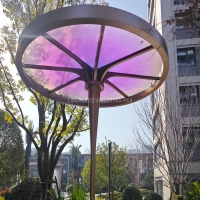Welcome to the website for landscape facilities products and knowledge.
What are the most common concerns raised by environmental or sustainability advocates about the table?
Environmental and sustainability advocates raise significant concerns about the common table, an object often taken for granted. Their primary focus lies in the sourcing of materials. The widespread use of wood, particularly from non-sustainable logging operations, drives deforestation, habitat destruction, and a loss of biodiversity. This is especially critical for tropical hardwoods, which may be illegally harvested.
Beyond the origin of the wood, the manufacturing process itself is scrutinized. The adhesives, paints, and protective finishes used in many tables often contain volatile organic compounds (VOCs) like formaldehyde. These chemicals can off-gas into indoor environments, contributing to poor air quality and posing health risks long after the table has left the factory.
The carbon footprint associated with table production is another major issue. The entire lifecycle—from harvesting raw materials and powering manufacturing facilities to the global transportation of the final product—consumes vast amounts of energy, primarily from fossil fuels. This contributes substantially to greenhouse gas emissions.
Furthermore, advocates point to a culture of disposability. Inexpensive, mass-produced tables, often made from low-quality particleboard or plastic, have a short lifespan. They are frequently discarded rather than repaired, ending up in landfills where they contribute to the growing problem of solid waste. The use of non-biodegradable materials and mixed-material construction makes recycling these items exceptionally difficult.
Finally, the social dimension of sustainability is also a concern. The supply chain for materials like wood or metal can sometimes be linked to poor labor practices and a lack of fair wages in certain regions. In response to these multifaceted issues, the push for change is growing. Advocates and conscious consumers are increasingly demanding tables made from certified sustainable wood, rapidly renewable resources like bamboo, or reclaimed materials. They also support the use of non-toxic, water-based finishes and a design philosophy centered on durability, repairability, and end-of-life recyclability, transforming the humble table into a symbol of responsible consumption.
Related search:

Recommendation
Metal frame with gradient color acrylic combined with high-end shading landscape facilities